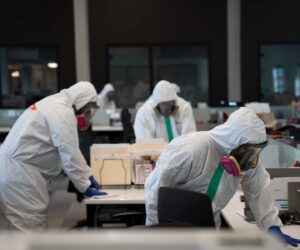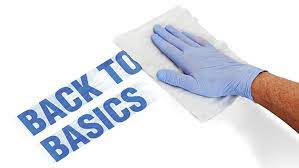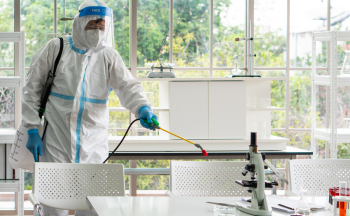 March 2022
March 2022
People will be debating our response to the pandemic for many years. Could we have done more to save lives, maintain access to common areas of our high-rise communities, and keep businesses and schools open?
Future generations may be surprised at our focus on extreme cleaning. We’ve relied on squirts, hand wipes and sprays while assuming this is all good. Yet science has identified concerns with this approach.
Tiny organisms coexist with our living environment. With so many spending almost their entire day indoors, we are less exposed to these organisms that share our immediate surroundings. We no longer spend our time among trees, grass and dirt which has led to unexpected consequences.
Modern societies that utilize newer cleaning products have seen a rise in autoimmune conditions such as celiac disease and Type I diabetes. There are more allergies to peanuts and hay fever.
Our extreme focus on cleanliness combined with more time indoors has impacted our bodies long before COVID became a concern. By 2021, we were asked by the CDC to clean less and the journal Nature ran the headline ”COVID-19 rarely spreads through surfaces. So why are we still deep cleaning?” Yet the extreme cleaning continued.
Science tells us that cleaned surfaces repopulate with microbial life almost immediately. We are killing what our bodies are used to dealing with and making it easier for tougher diseases to thrive. Loss of outdoor time deprives our bodies of beneficial microbes.
In our high-rise homes we ignored the more important issue of healthy air. Worse, we have inhibited air circulation by installing plastic barriers in the belief that this extra physical separation is helpful. We’ve allowed transmission of viruses through the air while extreme cleaning surfaces to what may be no positive effect.
Replace extreme cleaning with a balanced approach to cleaning, safety and health consistent with current science.
Increasing frequency of cleaning is ineffective if done poorly or using the wrong cleaning products. It becomes a waste of money that makes people “feel good” without delivering results. Rely on experience, knowledge and science to provide better protection.
Cleaning well is more effective than extreme cleaning, can save money and offers health benefits. Use cleaning and disinfecting products as directed rather than assuming more is better. Avoid excessive use of bleach with its negative health and environmental impact.
Place a greater emphasis on cleaner air by ensuring equipment and ducts are regularly cleaned and in good operation. Added benefits include reduced energy and maintenance costs.
As we plan for a life with COVID, high-rise communities can do better by focusing on what really matters.







